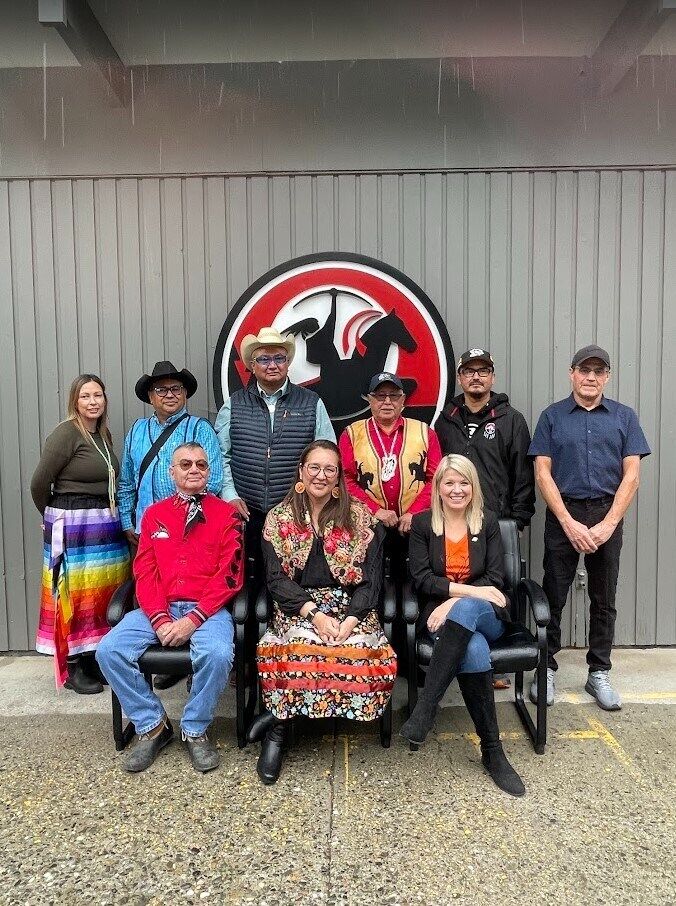The Tŝilhqot’in Nation Nitsilʔin-Qi (Council of Chiefs), with the Honourable Mandy Gull-Masty, Federal Minister of Indigenous Services, and the Honourable Jodie Wilkens, the B.C. Minister of Children and Family Development announced that the three governments have extended their coordination agreement to advance First Nations-led child and family services.
The agreement, first signed on May 9, 2025, gives the Tŝilhqot’in Nation greater authority over child and family services in its six communities. Reflecting a shift between the three governments towards Indigenous self-governance in child welfare.
“The child welfare system has never worked for our people. We know how to care for our families and our children. It is deep in our teachings and identity as Tŝilhqot’in people,” said Tŝilhqot’in Nits’ilʔin, Otis Guichon, Tribal Chief, in a statement.
“Today we come together as partners, unified and surrounded by the joy and laughter of our families, to honour our Tŝilhqot’in children, laws, and teachings. We commend our federal and provincial partners for recognizing our inherent jurisdiction as Tŝilhqot’in people to care for our families and our children. Today, we show the world together that a better future is possible for these children and the generations to come.”
Honourable Jodie Wickens, in an interview with Vista Radio, said she was honoured to have been a part of the Tŝilhqot’in Nation’s celebration.
“It is a really historic announcement. Today’s celebration was a real sense of pride for the community, for the chiefs, for the elders. This has been generational work. People have been working on this agreement for years. This coordination agreement is transformational.”
One of the amendments from the original agreement to the one signed on September 27 was that the initial one-year fiscal arrangement has been extended to a five-year funding commitment. The services will be grounded in Tŝilhqot’in laws and values to develop systems of self-governance, accountability, dispute resolution, prevention programs, and cultural continuity.
“We are a healing Nation and today we are proud to stand with our partners celebrating this tripartite agreement,” said Nits’ilʔin (Tribal Vice-Chief) Francis Laceese in a statement. “This is healing for our people, and most importantly our children and future generations.”
Funding commitments have also been expanded and amended. Canada will provide base funding of $18,824,069 per year, adjusted annually based on inflation and growth, in addition to a $132 million investment to support infrastructure needs for child and family programming across the six Tŝilhqot’in communities.
The Province of British Columbia will provide $766,222 annually, in addition to cost-of-living increases.
“The Tŝilhqot’in Nation are the best people to decide how they will enact their own laws, and what services they will deliver for their families,” says Wickens. “The Province is also working towards co-developing with First Nations a funding model with respect to jurisdiction and with respect to child, family, and community services. That work is still ongoing and underway.”
Leaders of the Tŝilhqot’in Nation emphasized that caring for children within their own culture and teachings is the best way forward. The Federal and Provincial representatives say the agreement is a historic step in reconciliation, aimed at keeping families together and improving outcomes for Indigenous children and youth.
“This coordination agreement reaffirms that First Nations have always held the inherent right to care for their children. What is evolving is the recognition, the resources, and the partnerships to uphold that right,” said the Honourable Mandy Gull-Masty in a statement.
“For the Tŝilhqot’in Nation, this agreement provides stability and capacity to deliver care rooted in their own law, values, and traditions — ensuring children grow up with culture, belonging, and collective healing at the heart of their journey.”
This agreement is the fifth coordination agreement in B.C., and the 15th in Canada. Marking a growing recognition of Indigenous jurisdiction over child and family services nationwide.
Something going on in the Cariboo you think people should know about?
Send us a news tip by emailing [email protected].










